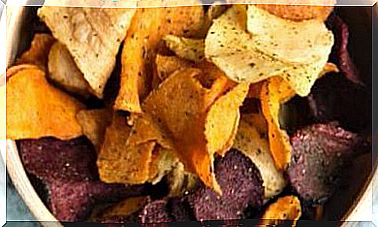We Need A Global Change: No Meat, No Milk, No Dairy
A cleaner plant-based diet benefits us individually and makes us feel in harmony with nature

Not many years ago, the United Nations issued an alert warning that a transition to a free diet of animal products was vital to saving the world from famine, poverty and climate change.
If you are reading this article, surely you are one of mine, of whom we have become aware and that we believe that a cleaner and plant-based diet not only benefits us on an individual level, but also makes us feel in harmony with nature, source where we all come from and which must be respected.
Here are some data to help you reaffirm this awareness and you can share with those who still doubt that a more natural and respectful diet with the environment contributes to “the salvation” of our planet and, worth the redundancy, to the humanization of humanity.
According to the United Nations Environment Program (UNEP), the estimated world population for 2050 is predicted to be more than 9 billion people, which makes the standard type of diet that is carried in the countries of the northern hemisphere, rich in meats and derivatives, is unsustainable. Unless a global change is made, the impacts of agriculture on the Earth will be increasingly negative, since stopping eating is something that humans will never stop doing, indeed, we do it in increasing quantities and several times. up to date.
The announcement published by UNEP said that “a substantial reduction in this impact would only be possible if the consumption of animal products was stopped.” “The production of animal products has a greater impact on the environment than the production of construction materials such as sand or cement, plastics or metals. Biomass and crops to feed animals cause as much damage to the environment as burning oil, ”said Professor Edgar Hertwich, author of the UNEP announcement.
The waste and expense generated by raising livestock that will later be sold as “food” generates great pollution and wear and tear of the Earth’s natural resources.
Dr. Rajendra Pachauri, former chairman of the United Nations Intergovernmental Panel on Climate Change, also recommended, years ago, promoting one meat-free day a week to reduce carbon emissions. And it is that livestock consume most of the world’s crops, and indirectly is also responsible for a large use of fresh water, fertilizers and pesticides. Among other data, the UNEP announcement reported that “agriculture, specifically meat and dairy products and derivatives, are responsible for 70% of the consumption of drinking water, 38% of the land used, and 19% of the gases that cause The greenhouse effect”.
According to the FAO, if the estimated growth turns out to be a reality, world food production should increase by 70%. This growth is largely expected in developing countries, which tend to follow the same patterns as developed countries. So we, the “rich” countries (this adjective has always struck me as somewhat ironic …) must teach them the bad effects on the economy, health and sustainability that these trends cause before it is too late.
It is possible that some people feel weak without eating products of animal origin (many times because they do not consume enough quantity or variety of products), but what is clear is that we can all benefit from a greater consumption of vegetables, reducing the consumption of products of animal origin, look for cleaner alternatives of protein such as legumes, whole grains, seeds and nuts, and make a responsible and sustainable use of the resources that nature offers us.
Finishing this article, I remember a phrase used for a campaign by one of the home goods stores that I like the most. And it went like this: “Act locally, think globally. “
Bibliography
Assessing the Environmental Impacts of Consumption and Production: Priority Products and Materials, A Report of the Working Group on the Environmental Impacts of Products and Materials to the International Panel for Sustainable Resource Management. http://www.unep.org/resourcepanel/Portals/24102/PDFs/PriorityProductsAndMaterials_Report.pdf
UNEP’s Resource Efficiency Program WEB. http://www.unep.org/resourceefficiency/
2050: A third more mouths to feed. FAO WEB. http://www.fao.org/news/story/en/item/35571/icode/









